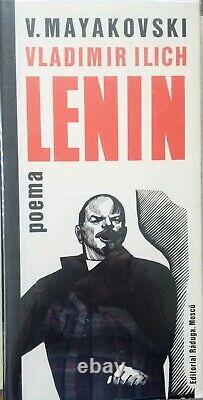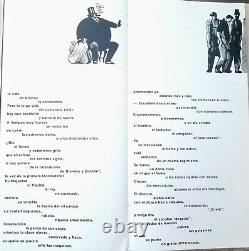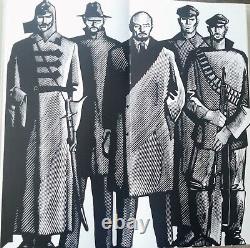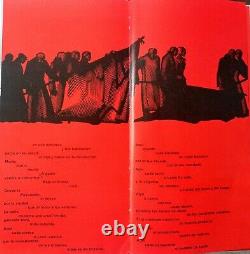
- Poems Poetry Art
- Author
- Alfred French (11)
- Charles Bukowski (12)
- Clarence F Underwood (6)
- Edgar Allan Poe (16)
- Edmund Spenser (7)
- Eyvind Earle (15)
- Jack Hirschman (16)
- John Hejduk (9)
- John Milton (7)
- Lance Woolaver (7)
- Lindley Murray (8)
- Patti Smith (16)
- Reilly Rhodes (11)
- Rosaleen Norton (6)
- Shel Silverstein (9)
- Unknown (9)
- Various (40)
- William Blake (9)
- William Shakespeare (7)
- Wulf Segebrecht (17)
- ... (3209)
- Binding
- Language
- Arabic (3)
- Czech & English (11)
- Dutch (5)
- Eng, Gec (3)
- English (1340)
- English, Japanese (3)
- English, Persian (3)
- English, Russian (9)
- French (43)
- Germ, German (4)
- German (45)
- German, Germ (12)
- Hebrew (3)
- Italian (11)
- Japanese (18)
- Latin (11)
- Persian (7)
- Portuguese (3)
- Russian (19)
- Spanish (13)
- ... (1881)
- Publisher
- Abrams, Inc. (12)
- Bernard Lintott (6)
- Brill (6)
- Broadside Press (10)
- De Selliers, Diane (10)
- E. Little & Co (8)
- George Olms (16)
- Gotham Press (9)
- Hard Press (15)
- Harpercollins (7)
- J.b. Metzlersche (17)
- Museum Of Modern Art (9)
- Nimbus Publishing (7)
- Rizzoli (9)
- Samuel French (7)
- Sore Dover Press (7)
- Ten Crow Press (6)
- Thames & Hudson (6)
- Unknown (11)
- X-ray Book Company (6)
- ... (3263)
- Region
- Signed
Vladimir Ilich Lenin A Poem by V. Mayakovski 1984







Vladimir Ilich Lenin - A Poem, by V. Was published in 1984 in Russia by Editorial Raduga as a translation of the original Russian version of the book published in 1924. As indicated in a handwritten note in a front free end paper. Printed in Moscow for distribution in Nicaragua and other Central America countries.
Was written on the death of the Soviet Communist leader. In October 1924, Mayakovski gave numerous public readings of the 3,000-line epic. The next February it came out as a book, published by Gosizdat. Five years later Mayakovsky's rendition of the third part of the poem, at the Lenin Memorial evening in the Bolshoi Theatre, ended with 20-minutes ovation. The book is beautifully done, split equally between text and images. The poem is generally known as Mayakovski's greatest work. The book's binding is paper over boards with the front lettering and illustration in black and red on a white background. It is quarter bound with a black cloth spine. Rectangular in length, adding to the dynamic nature of text and illustrations, it measures about 16 inches long and 8 inches wide. The original clear plasticene wrapper is present and untorn. Also present is the original red cloth bookmark. The book contains 127 pages, the first 105 being printed and illustrated in black on heavy white stock; pages 106 to 125 printed on bright red stock and the last 3 pages (notes and brief commentaries on the poem and illustrations) printed on white stock. The front and back paste-downs are black and the free end papers in red. We mention this because the colors used add to the dynamic and striking quality of this book.Barely discernible rubbing at bottom front outer edge, otherwise a very fine copy in the original stiff plasticene wrapper. He wrote and directed his own plays and starred in films, collaborating with Eisenstein, Shostakovich, Mayerhold and Rodchenko. He created propaganda posters, edited the art journal LEF, and gave readings in clubs and theaters. By the end of the 1920s, he found himself engaged in confrontation with the Soviet literary nomenclature, several of his scathingly satirical plays outraging the Soviet critics in 1930.
In the late 1950s and early 1960s, his popularity in the Soviet Union started to rise again with the new generation of writers recognizing him as a purveyor of artistic freedom and chose Mayakovsky's stature in Moscow for their organized readings A contradictory and controversial figure, he is considered a 20th-century Russian classic, whose innovative works broke new grounds in Russian language, both in poetry and arts. He was an influential professor at Moscow State University in the 1980s. In 1978, he was awarded the State Prize of the USSR, in 1984 he received the title of People's Artist of Russia and in 1977 he became vice-president of the Academy of Arts. His works are in the Tretyakov Gallery, the Russian Museum and in numerous public and private collections in Russia and abroad.
